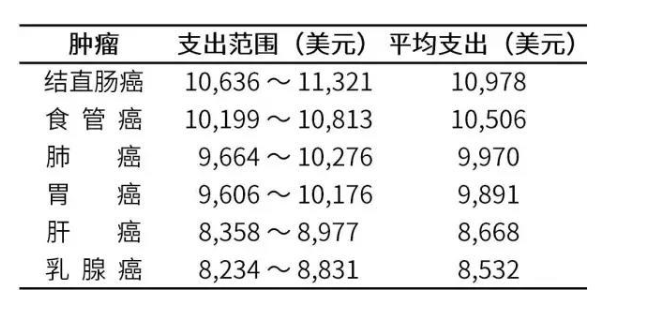
2023-09-27
How much money are you willing to spend in the face of a 'terminal illness'?
Recently, there has been an increasing amount of "easy fundraising" and fundraising information on social media, bringing with it a stream of tearjerking energy that makes people feel sad. The 'terminal illness' is not far from us, as we are living in a world widely surrounded by patients. If a loved one unfortunately suffers from a terminal illness, do you want to actively seek treatment by wandering around the place of origin, or do you want to stop losses in a timely manner and accept fate? This is a medical and ethical dilemma. Modern medicine is still helpless for many diseases, and in the face of "terminal illnesses", the so-called "state-of-the-art" treatment methods do not actually have many ideal effects, often just a psychological comfort. But how much is this meager 'hope in despair' worth buying? The reality of poverty caused by illness In recent years, there has been a popular term - 'poverty caused by illness'. A major illness can rob people of their hard-earned wealth and dignity overnight. The National Cancer Center relied on the China Urban Cancer Early Diagnosis and Treatment Project (CanSPUC) to collect information on 14594 patients with common cancers in 13 provinces and 37 tertiary hospitals across China from 2012 to 2014. The results of this project indicate that the average annual income of the patient's family is equivalent to 8607 US dollars, while the per capita medical expenses of cancer patients total 9739 US dollars. 77.6% of cancer patients believe that illness brings a heavy financial burden to their families.

The National Cancer Center's survey of cancer patients shows that as long as normal individuals are not willing to invest in a project with a high probability of loss and a low probability of benefit, they are only willing to generously donate when facing diseases. When a loved one is seriously ill, any rational stop loss decision will be questioned by public opinion and condemned by conscience; Despite their efforts to save at any cost, there is a high probability that both patients and their families will lose - losing both their lives and finances. The meaning of 'poverty caused by illness' has two layers: 1 Expensive medical costs; 2. The collapse of the economic pillar. It is difficult for a middle-class and salaried family to withstand such a double blow. In 2007, Taihai.com conducted an online survey: If your mother was seriously ill, how much would you spend? A total of 400 questionnaires were distributed in this survey, and 84.13% of citizens expressed their willingness to "exhaust their assets" to save their mothers. Among them, 65.08% were willing to go bankrupt and even face heavy debts. However, the reality seen in hospitals is completely different: "Those who have money are willing to spend hundreds of thousands of dollars on their children in their 80s; those who do not have money may give up treatment in their 60s. The economic situation affects filial piety! Many children are also willing to spare but unable to do so." Kong Weisheng, the chief physician of the Department of Cardiothoracic Surgery at Xiamen First Hospital, sighed, "It is not surprising that the elderly are seriously ill and their children give up treatment. On the one hand, many elderly people will ask doctors and children not to continue to burden the next generation, hoping to save on medical expenses and let the next generation live a better life. They even prefer to leave the money for building houses rather than spending it on their own medical treatment. On the other hand, children may also consider financial difficulties, difficulty in borrowing money, or hope to save some savings for the next generation to study. I'm also worried about spending medical expenses and not being able to save my life, leaving me with no money or resources. Therefore, he followed the elderly's request and gave up treatment. Some people say that this is not just a problem in China, but because the cost of medical care in China is too high, the poor in China cannot afford to see illness, and the middle class in China is impoverished due to illness. In fact, even the lighthouse of human civilization - the United States - does not seem to have an ideal solution to the issue of medical costs for ordinary civilians. Former Vice President Biden of the United States, whose son had cancer, had to resort to the last resort of "selling a house to save his life". Even Obama personally had to lend him money to help him overcome the difficulties. You should know that Biden himself owns a mansion worth up to 30 million yuan, and the entire family is a legitimate upper class.

Xinhua reported that the Vice President of the United States wants to sell a house to save children. In a country with superior welfare and a well-developed medical system, even prestigious families like the Vice President cannot escape the fate of becoming poor due to illness. Poverty caused by illness is not a Chinese characteristic, but a global problem. Or rather, it is the fate of all humanity. Minor illnesses cost little money, major illnesses cost a lot, and diseases that approach the limits of medicine are bound to have an "extreme" cost of treatment. In the face of some diseases, 'losing everything' is naturally the necessary price for purchasing survival opportunities. But sometimes, no amount of money can buy a medical miracle. The last hope of life, on the other hand, relies on a large amount of medical resources (technology, equipment, materials, and drugs) to support it, which is an overdraft and consumption of social costs. This is not only a heavy economic account, but also a dilemma ethical account. Giving up should not be accused of facing a terminal illness. Can we choose to give up and accept our fate? Unlike ordinary patients who actively seek survival, healthcare workers with the most medical resources and knowledge often choose to "follow fate" when facing "terminal illnesses" for themselves and their families. In 2016, the Cancer Hospital affiliated with Fudan University released a survey report on the current situation and concepts of life education, eugenics, and mortality. Among the 528 people surveyed (including 194 with medical background), 53.22% of respondents chose not to be hospitalized and enjoy the rest of their days with their loved ones, while only 5.11% chose to be hospitalized, actively seek treatment in the hospital, and ultimately survive even if unconscious. But not everyone can understand this choice. In April 2011, Chen Zuobin, a doctor in the First Affiliated Hospital of Zhejiang University School of Medicine, learned that his 79 year old father was in advanced cancer and had metastasized all over the body. He and his brothers and sisters made an amazing decision to let his father go home for rest.
Source: Dingxiangyuan